09 Oct 2024 - {{hitsCtrl.values.hits}}
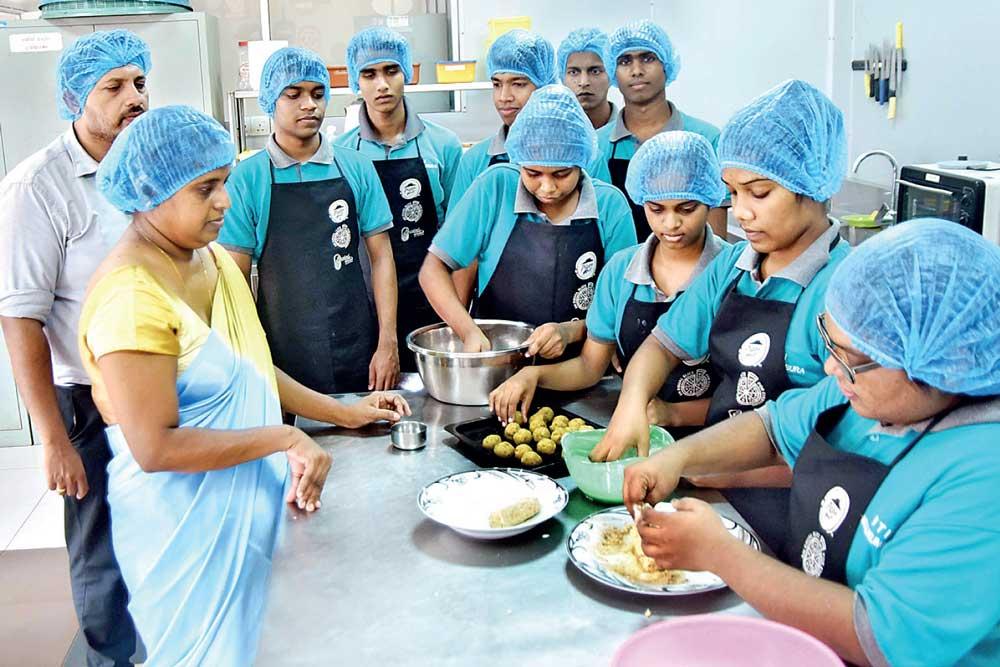
Students engaging in food technology courses guided by their instructor (Pix by Kushan Pathiraja)
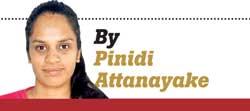 According to the surveys conducted by the National Institute for Health and Care Research (NIHR) Sri Lankans experienced significant mental health difficulties; research figures indicating an increased from 2.9% to 6.1% during the years 2018 to 2022 respectively. This data highlight a noticeable rise in mental health challenges during this period, potentially influenced by factors such as social, economic, and environmental changes, including the impacts of the pandemic.
According to the surveys conducted by the National Institute for Health and Care Research (NIHR) Sri Lankans experienced significant mental health difficulties; research figures indicating an increased from 2.9% to 6.1% during the years 2018 to 2022 respectively. This data highlight a noticeable rise in mental health challenges during this period, potentially influenced by factors such as social, economic, and environmental changes, including the impacts of the pandemic.
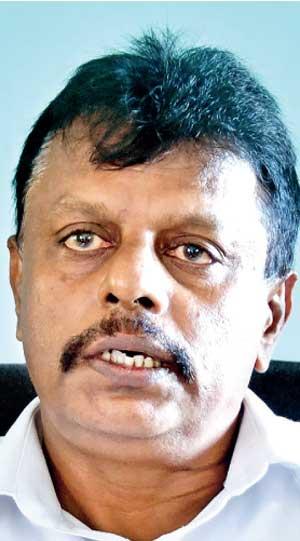 |
| N.M.S. Udayakumara-official in charge of the Amunukumbura Vocational Training Centre |
Due to the increasing prevalence of mental disabilities in Sri Lanka, various institutes and organizations have emerged to support individuals facing these challenges. These institutions aim to provide tailored care and vocational training, enabling individuals to lead more independent lives. They focus on improving mental health outcomes through community integration programmes. Physically and mentally challenged children are often unfairly labelled as ‘incapable.’ However, vocational institutes like these help such individuals to overcome challenges and carve their paths to gain financial independence.
For example the Amunukumbura Vocational Training Centre, in the Gampaha district, provides support and training for such individuals. It is a vocational training institute registered under the Department of Social Services. Established in 1989, it currently has 11 other vocational training institutes under its purview. Other branches of these centers are located in places such as Wattegama in the Kandy district, where motor mechanics is offered as a course. Additional centres are located in Seeduwa, Ragama and other locations. The centre accommodates not only mentally challenged youth, but also those with physical disabilities. Since these centres are funded by the government, they provide all the necessary resources for the children. The institute in Gampaha caters to the needs of both male and female students. Disabled youth between the ages 16 – 35 enroll themselves at these centres.
“The children here receive all essential services free, including clothing, food and vocational training. Additionally, each student is provided with an attendance allowance of Rs. 4500,” said N.M.S. Udayakumara, the officer in charge of the Amunukumbura Vocational Training Centre. The center’s primary objectives are to help youth overcome challenges through training and contribute to national development by enhancing their skills. This centre serves as a place where physically challenged youth can gain financial independence.
Variety of training programmes
According to Udayakumara, the centre offers a variety of training programmes tailored for physically challenged youth. These individuals are trained in various fields and are provided with the necessary training upon completing their courses to help them start their businesses. Currently, the Gampaha Centre offers seven courses which specialise in food technology, graphic designing, hospitality and care, agriculture, tailoring, cement-related product manufacturing apart from running a newly established job training unit.
Udayakumara added that a leading fast food company has started recruiting youth from the centre to enhance their production. The duration of these courses is between one to two years. The job training unit offers knowledge and practice in folding cardboard for different purposes. Tertiary and Vocational Education Commission (TVC) has granted NVQ 3 certificates for two courses, food technology and tailoring.
A test is conducted by 11 different institutes across various locations to select students for their respective fields of study. The Department of Social Services will be selecting the students based on their grades. Udayakumara mentioned that students who produce high marks in the exam are promoted to the graphic design section, as their mental abilities are considered to be higher compared to other physically challenged students. “In addition to these factors, we also consider the interests of both the students and their parents,” he added.
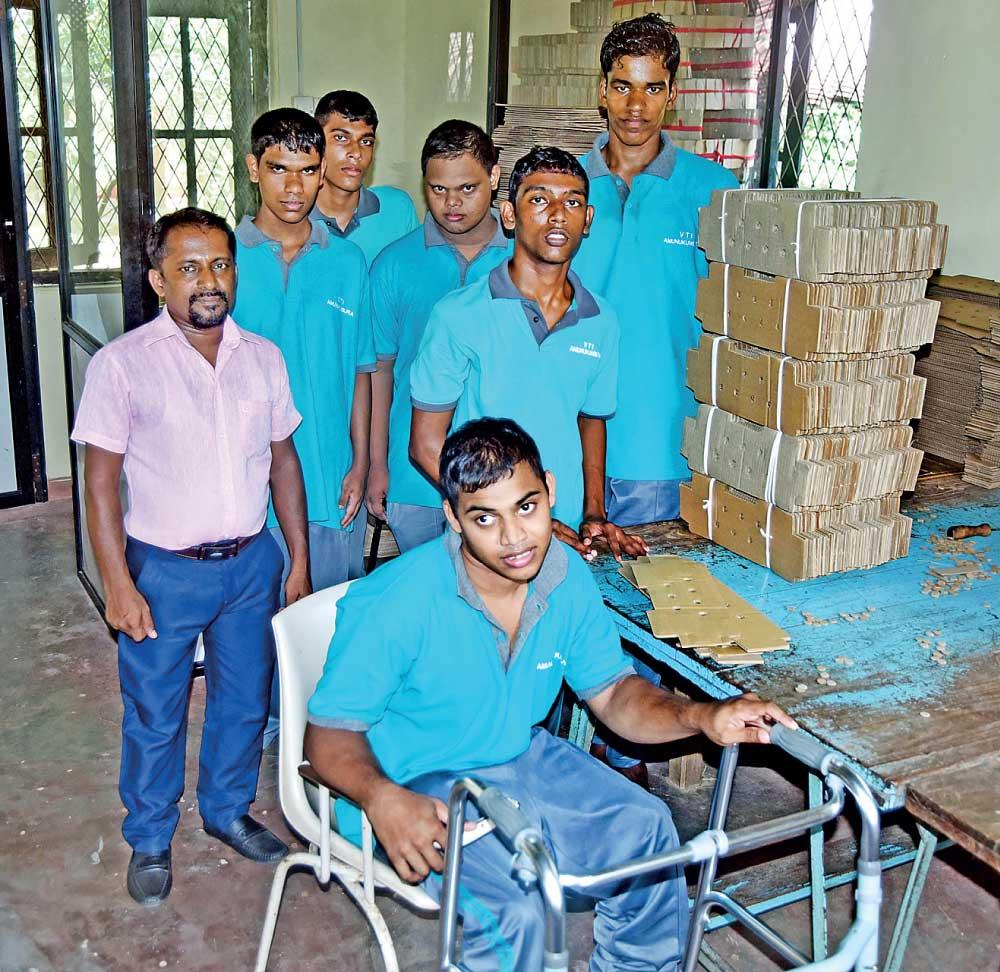
Students enrolled at the new job training unit learning how to fold cardboard into cardboard boxes
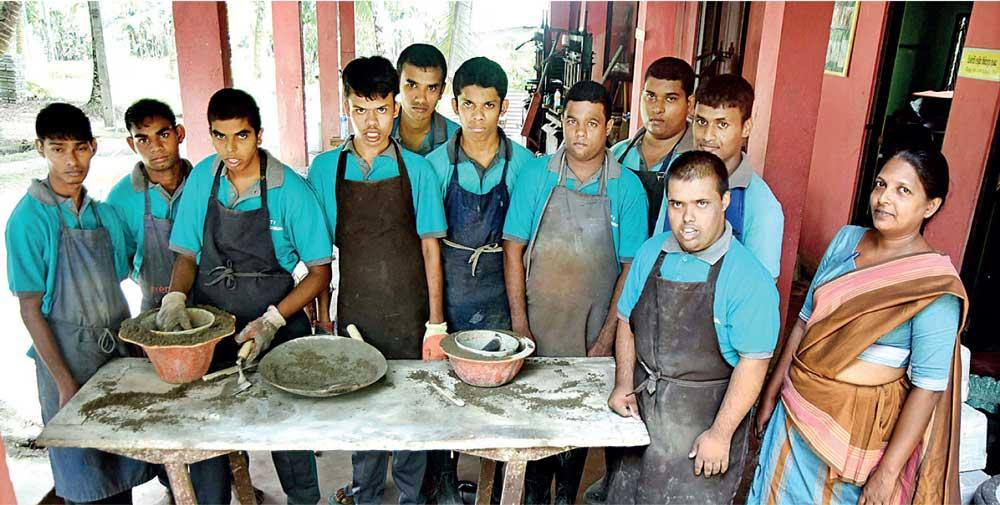
Students learning cement-related product manufacturing
Noticeable improvement in the children
“During this whole procedure, including the course and the lecturers who teach the course, the government plays a major role. All the expenses are borne by the government. Including the payments for the instructors and the maintenance,” underscored Udayakumara. In response to a question from the Daily Mirror about how one can apply to these institutes, Udayakumara explained that applications are called annually in October. The process is managed by the Divisional Secretariat through social service officers, with additional notifications provided via social media.
“Instructors and consultants are recruited based on their qualifications, and each course programme has specific qualification requirements that must be met,” emphasised Udayakumara. During the visit to this institute, this writer noticed a shop displaying cement pots made by students enrolled in the institute’s courses, which were for sale. Vegetables grown by the students are used for consumption and the excess is sold. Udayakumara also explained that the proceeds from selling cement-related products go to the government. Additionally, he mentioned a programme called ‘Shelter Work,’ where graduates of the institute are brought in to produce cement blocks. “Students who completed their courses are provided with a set of agricultural equipment while tailoring students receive a sewing machine to start their businesses after graduation,” stated Udayakumara. This procedure is applied to all other courses as well.
He maintained that there was a noticeable improvement in the children who attended the centre for several years compared to when they arrived. He explained that group-based activities and ongoing engagement contribute to their development. He also highlighted that all major religious festivals are celebrated at the centre, ensuring equal respect for all religions. “We have a dance group here, and we always make sure to give them opportunities. There’s an event called Sithru, where dance groups from all our branches come together for a competition, and we were able to win it this time,” Udayakumara shared. He noted that these physically challenged students actively participate in sports activities. In conclusion, he emphasised that all these experiences help the students develop better personalities and improve their abilities despite their disabilities.
Some students struggle when learning, so we teach them basic English, Sinhala, and simple math skills relevant to running their businesses. “We have a two-week orientation programme before diving into the main subjects,” Udayakumara explained. “There’s always about a 10% chance of students exhibiting violent behaviour in each intake,” he added. He stated that the Amunukumbura Vocational Training Centre has around 65 students, but is capable of allocating about 90 students. Udayakuamara said that he and the staff are hoping to bring in more students during the new intakes.
“If anyone wishes to contribute, they are welcome,” Udayakumara stated, highlighting the centre’s openness to receive support from the community. All contributions are directed to the Director of Social Services, following established procedures. He also noted that the Gampaha Centre is considering adding a plumbing course to its curriculum. The centre ensures that all necessary sanitary items are provided, and assistance is readily available for those in need. The writer observed that the environment around the centre wasn’t only well-maintained, but also clean and hygienic, reflecting a commitment to the well-being of students.
Several vocational training institutes of the Department of Social Services are operating under the Open School Programme led by the National Institute of Education, which is supported by the technical and financial support of Korea and the The United Nations Educational, Scientific and Cultural Organization (UNESCO). The children were registered under the ENUMA SCHOOL computer application and tab computers were also awarded. The South Korea UNESCO Institute will provide basic training to the children in this regard, according to Udayakumara.
As Udayakumara pointed out, many of these individuals are just starting their paths toward financial independence and personal growth. The centre is dedicated to expanding its training programmes and ensuring inclusivity, creating opportunities for a brighter future for all its students. The question remains: how can we, as a society, further support such initiatives to ensure that every individual, regardless of their disabilities, has the chance to thrive?
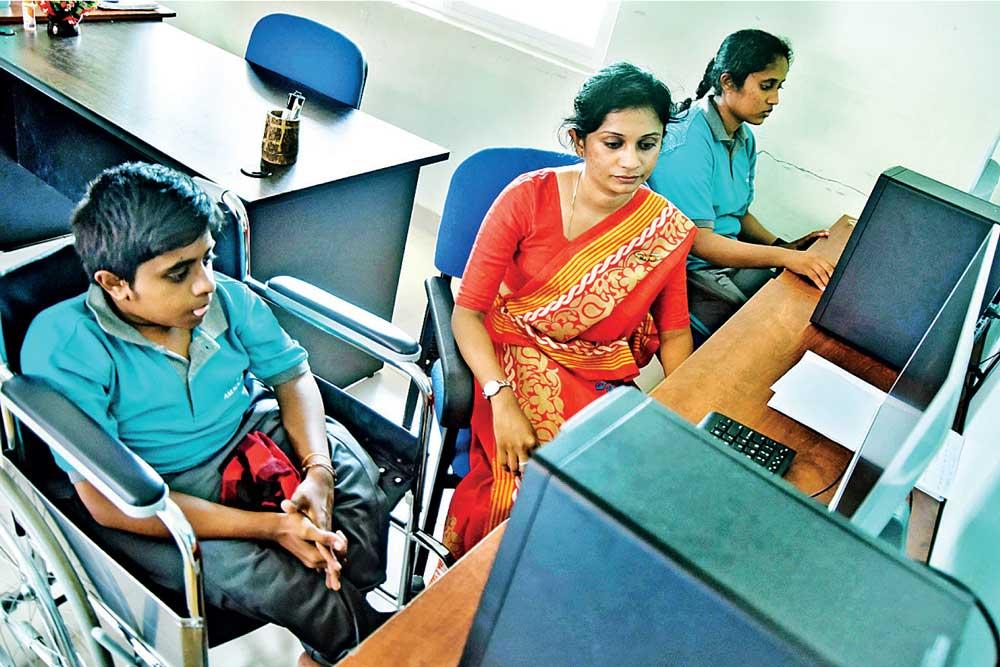
Physically challenged students learning graphic designing under their instructor
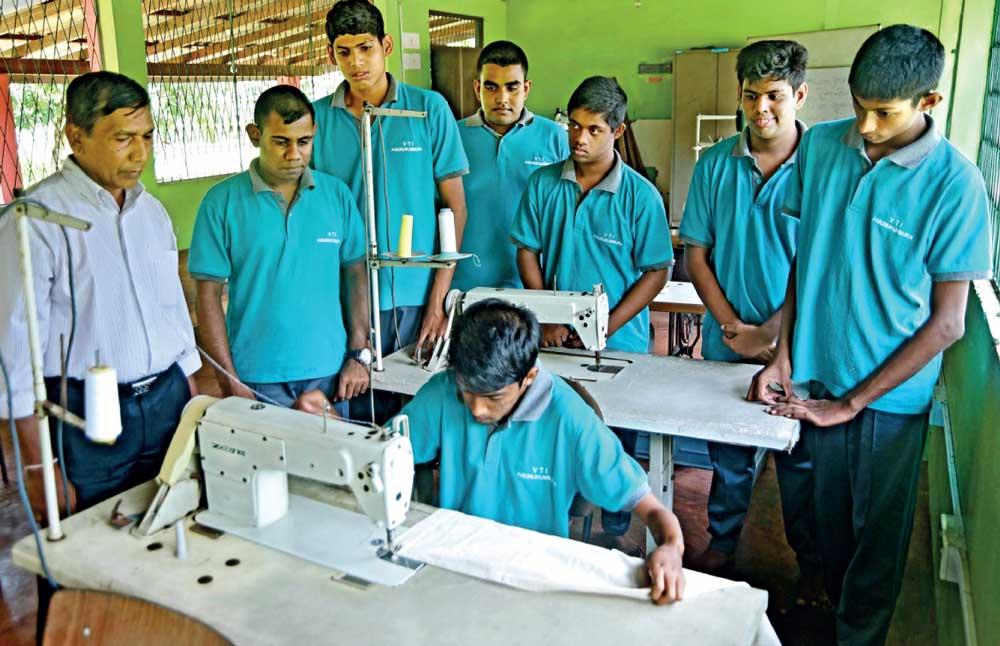
Students engaging in tailoring
25 Dec 2024 9 hours ago
25 Dec 2024 25 Dec 2024
25 Dec 2024 25 Dec 2024